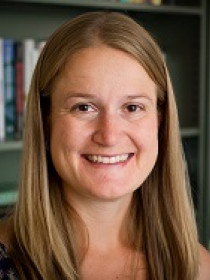
Sarah Reckhow
Connect with Sarah
About Sarah
Reckhow’s research examines education policy and social welfare policy, particularly in urban areas. Her work on urban schools has focused on policy reforms in New York City, Los Angeles, and Oakland. She is an expert on the rising influence of major foundations, such as the Gates Foundation, on education policy and politics. She has also analyzed philanthropic support for metropolitan social safety nets in Detroit, Chicago, Atlanta, and Denver. This research was published in a report from the Brookings Metropolitan Policy Program. Reckhow is affiliated with the Global Urban Studies Program at Michigan State, the Education Policy Center at Michigan State, and the MacArthur Foundation’s Building Resilient Regions research network.
Contributions
Can Philanthropists Engineer Effective School Reforms?
No Jargon Podcast
In the News
Publications
Supports law case demanding that State of Michigan ensure that Detroit students receive evidence-based literacy instruction at the elementary and secondary level.